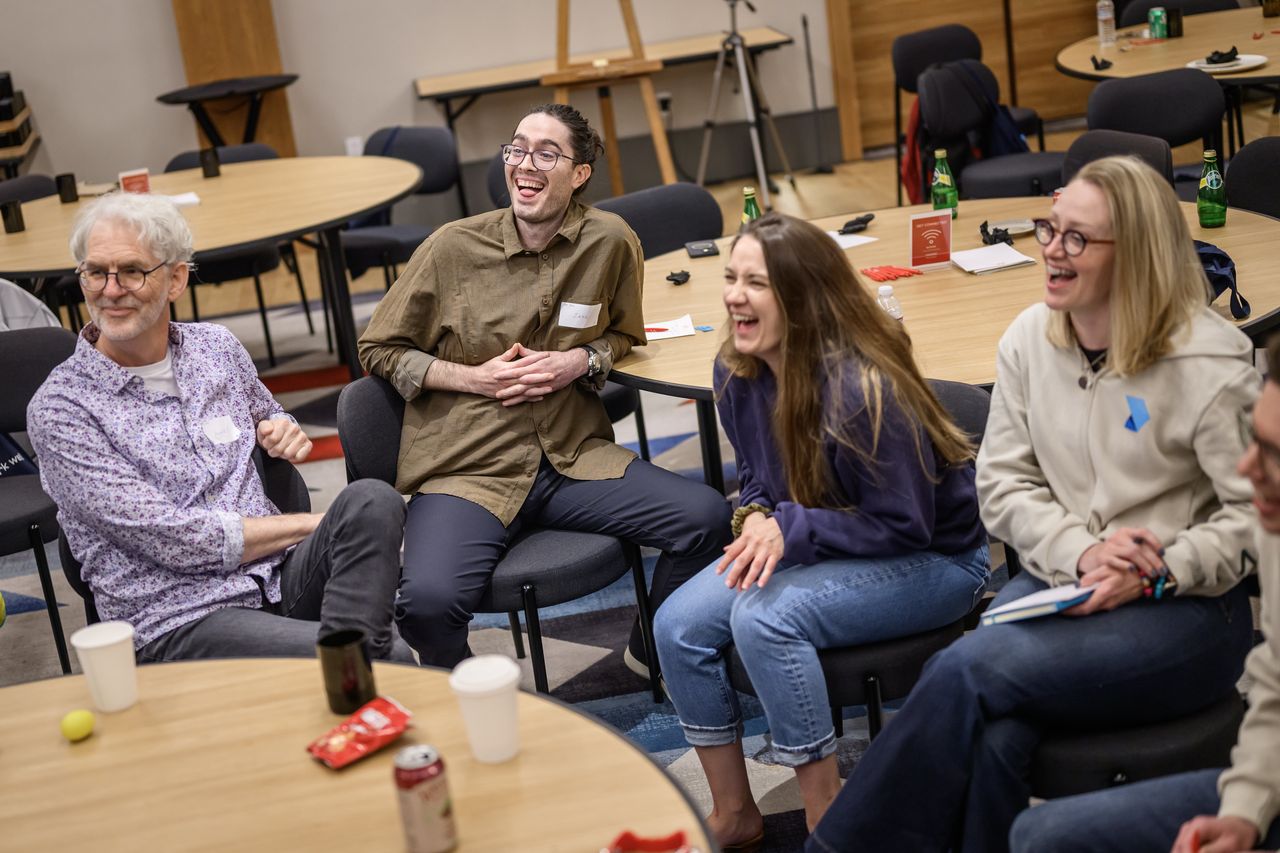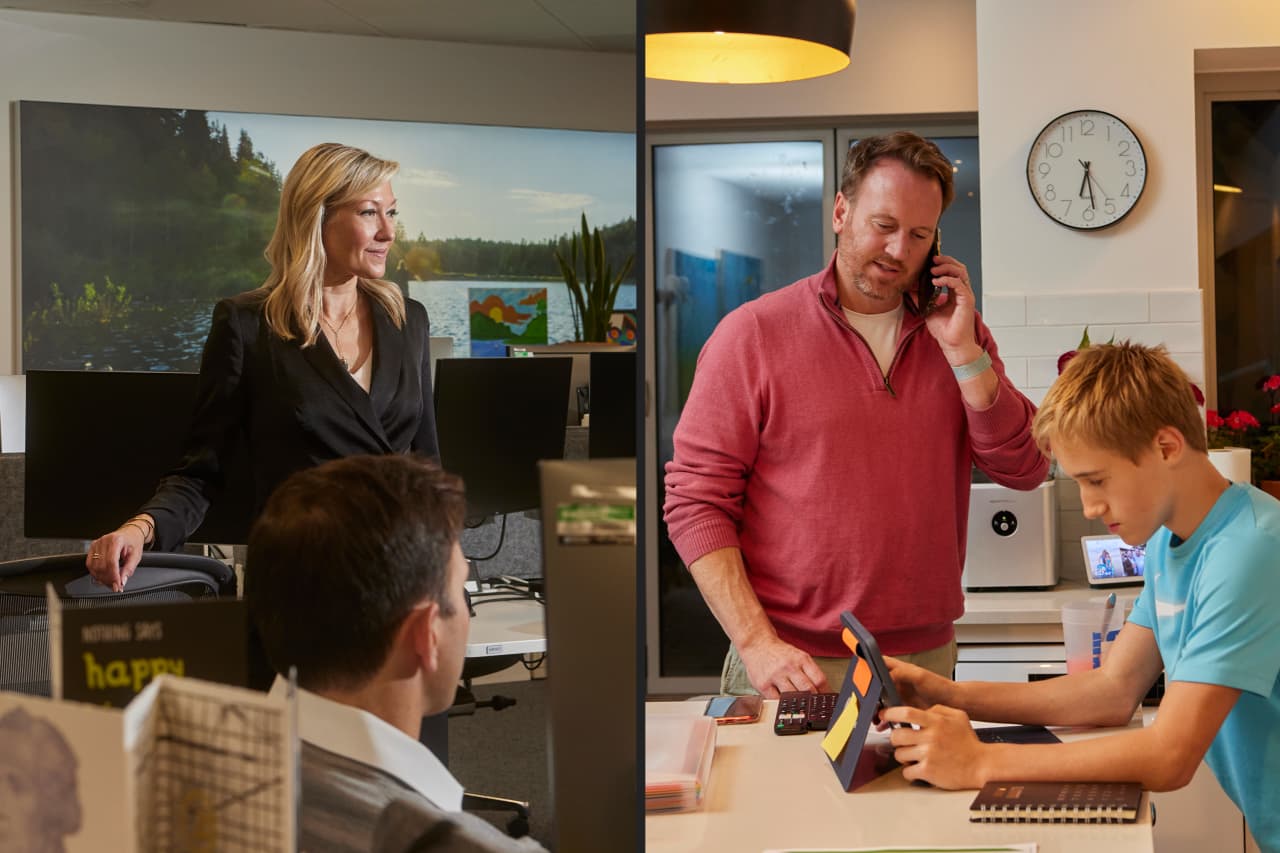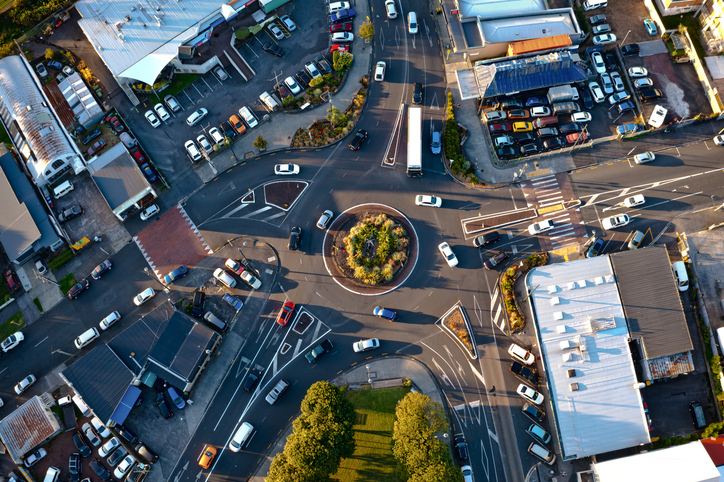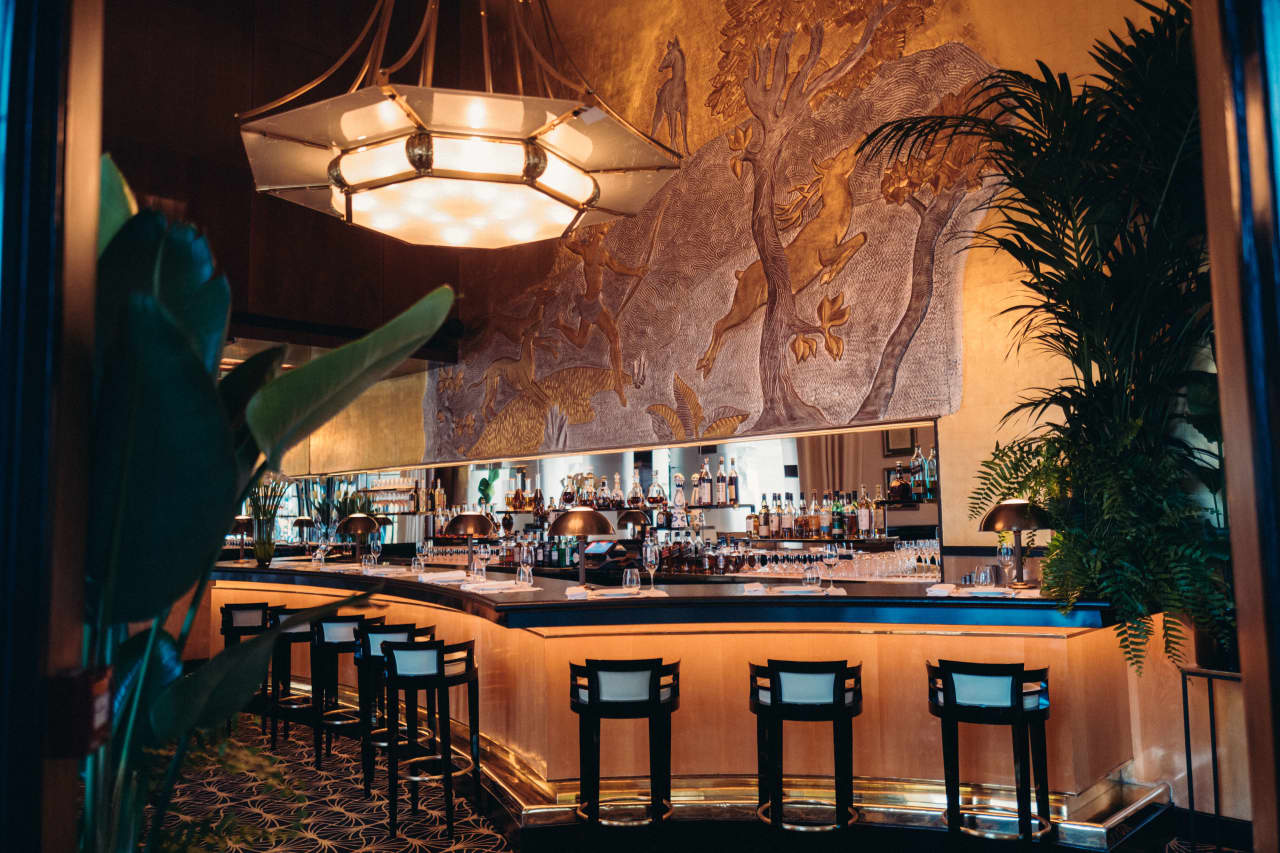Quit Being a Cynic at Work. It’s Holding You Back.
There are ways to fight the tendency to see the worst in everyone
We don’t want to be friends with our co-workers . We don’t want to help out with that project. We don’t trust the CEO…or our boss…or that guy in accounting.
Have we taken our cynicism at work too far?
In some ways, our bad attitude makes sense. Many of us made work our church, only to end up laid off , burned out or underpaid. Now we check out, do less, gossip and snark.
It isn’t getting us anywhere good, according to Jamil Zaki , a Stanford University psychology professor who runs the school’s social neuroscience lab.
“Cynicism, if it were a pill, would really be a poison,” he says.
Zaki has spent years researching sunny concepts such as empathy and compassion. One of his studies, for example, found that giving away money activates a similar part of the brain as eating chocolate. His forthcoming book, “Hope for Cynics,” explores the rise of our darker sides, our belief that other people are selfish, greedy and dishonest.
Betrayed once, we practice what Zaki calls “pre-disappointment,” always assuming others will let us down. The mindset feels productive and cunning, like we’ll be able to protect ourselves. But Zaki says it can actually stunt our careers in the long run, and hurt our mental and physical health.
“By never trusting, cynics never lose,” he writes. “They also never win.”
He assures that you don’t have to become the company cheerleader, or even an optimist, to grow your faith in other people. You do have to take a chance on them, examining your own assumptions and suspending your conviction that you already know how this is going to turn out (not well).
While the approach might initially seem blasphemous to the more negative, sarcastic and skeptical among us—like, say, me—anyone can become less cynical , he says.
You might even find you like it.
How we got here
Once upon a time, Americans were less cynical, Zaki says. A longstanding survey from research organisation NORC at the University of Chicago, which has examined American attitudes since 1972, shows we used to trust each other more. Around the middle of the last century, many hummed along on the rosy glow of plum benefits, robust job security and the knowledge that the chief executive was making, say, 20 times a worker’s pay, instead of 200.
It isn’t that we never complained about work, but Zaki says we repaid our companies’ loyalty with commitment, as part of an unspoken covenant.
Today, that employee-employer pact can feel like a relic of a bygone era. Workers have swapped pensions and equity in their companies for more meagre benefits that put the risk and onus on individuals. Instead of reporting to paternalistic employers, many people now operate under tenuous contracts and gig work.
Some of us work from home in isolation or spend lonely days in the office trapped on back-to-back video calls. There’s less chitchat, less interaction.
“We don’t like people when they’re abstracted,” Zaki says, “but we love people who we actually know.”
Zaki understands why, given all this, we might scoff at the notion that our company is a family, or roll our eyes at the prospect of joining in forced fun at the office happy hour.
Sometimes, I suspect, we also adopt a toughness because we don’t want to look like we’re trying too hard, only to fail or be rejected. Maybe it stems from perfectionism, or anxiety, or insecurity after being exposed to everyone else’s highlight reel on social media for the past 15 years.
Fighting our own worst tendencies
It might seem like all the office snakes are scaling the ladder, but Zaki says studies show cynics’ earnings and leadership potential level off with time. To do good work and attain success, you have to build alliances and share information. Translation: You have to trust someone.
Cynics are prone to poor health, from depression to heart disease, he says, adding that at an organisational level, cynicism can lead to pervasive backstabbing, higher turnover and even corporate corruption.
Cynicism is also a self-fulfilling prophecy, he says. People often mirror how we treat them. Micromanage your team—surveilling them and wresting away their ability to make decisions—and they’ll become the slackers you think they are, doing the bare minimum and buying mouse jigglers to mask time away from their home computers.
“Cynics tell a story full of villains and end up living in it,” he writes.
Resisting cynicism’s pull starts with being open-minded. Examine the data of your life like a scientist would, he says, instead of jumping to conclusions, positive or negative. Think everyone at your job is out for themselves? Ask 10 colleagues for a favour, and see if anyone agrees to help. Convinced every conversation with a co-worker will be painful? Spend a day rating your interactions with them on a scale from 1 to 10.
Challenging your assumptions will leave you pleasantly surprised, Zaki promises, because people often rise to the occasion when we let them. You can start by doling out what you hope to receive. Try engaging in “positive gossip,” speaking highly of others. Take a leap of faith in someone, and do it obviously.
“I trust you,” a manager might say to her direct report. “I really think you can do this.”
Calibrating our hope
Could all this make us too soft? Rejecting cynicism doesn’t mean you can’t hold workers to high standards, Zaki says. Just don’t pit them against each other, with practices like stack rankings, where collaboration is discouraged as workers try to claw above each other on a scoreboard.
Your humour can still be irreverent, even biting, he adds, but jokes should ultimately bring people together or improve something.
“Snark, in the absence of any hope, kind of curdles,” he says.
And don’t be blindly optimistic, he adds. If leadership isn’t giving you any reason to have faith in them, don’t. Find another group to trust—maybe your small team or a union. Band together to provide a buffer to the daily stress of working in your organisation, or enact change by fighting for something better.
“We often underestimate how much influence we have,” he says. “Own that power.”
 Copyright 2020, Dow Jones & Company, Inc. All Rights Reserved Worldwide. LEARN MORE
Copyright 2020, Dow Jones & Company, Inc. All Rights Reserved Worldwide. LEARN MORE
This stylish family home combines a classic palette and finishes with a flexible floorplan
Just 55 minutes from Sydney, make this your creative getaway located in the majestic Hawkesbury region.
More than one fifth of Australians are cutting back on the number of people they socialise with
Australian social circles are shrinking as more people look for ways to keep a lid on spending, a new survey has found.
New research from Finder found more than one fifth of respondents had dropped a friend or reduced their social circle because they were unable to afford the same levels of social activity. The survey questioned 1,041 people about how increasing concerns about affordability were affecting their social lives. The results showed 6 percent had cut ties with a friend, 16 percent were going out with fewer people and 26 percent were going to fewer events.
Expensive events such as hens’ parties and weddings were among the activities people were looking to avoid, indicating younger people were those most feeling the brunt of cost of living pressures. According to Canstar, the average cost of a wedding in NSW was between $37,108 to $41,245 and marginally lower in Victoria at $36, 358 to $37,430.
But not all age groups are curbing their social circle. While the survey found that 10 percent of Gen Z respondents had cut off a friend, only 2 percent of Baby Boomers had done similar.
Money expert at Finder, Rebecca Pike, said many had no choice but to prioritise necessities like bills over discretionary activities.
“Unfortunately, for some, social activities have become a luxury they can no longer afford,” she said.
This stylish family home combines a classic palette and finishes with a flexible floorplan
Just 55 minutes from Sydney, make this your creative getaway located in the majestic Hawkesbury region.






















